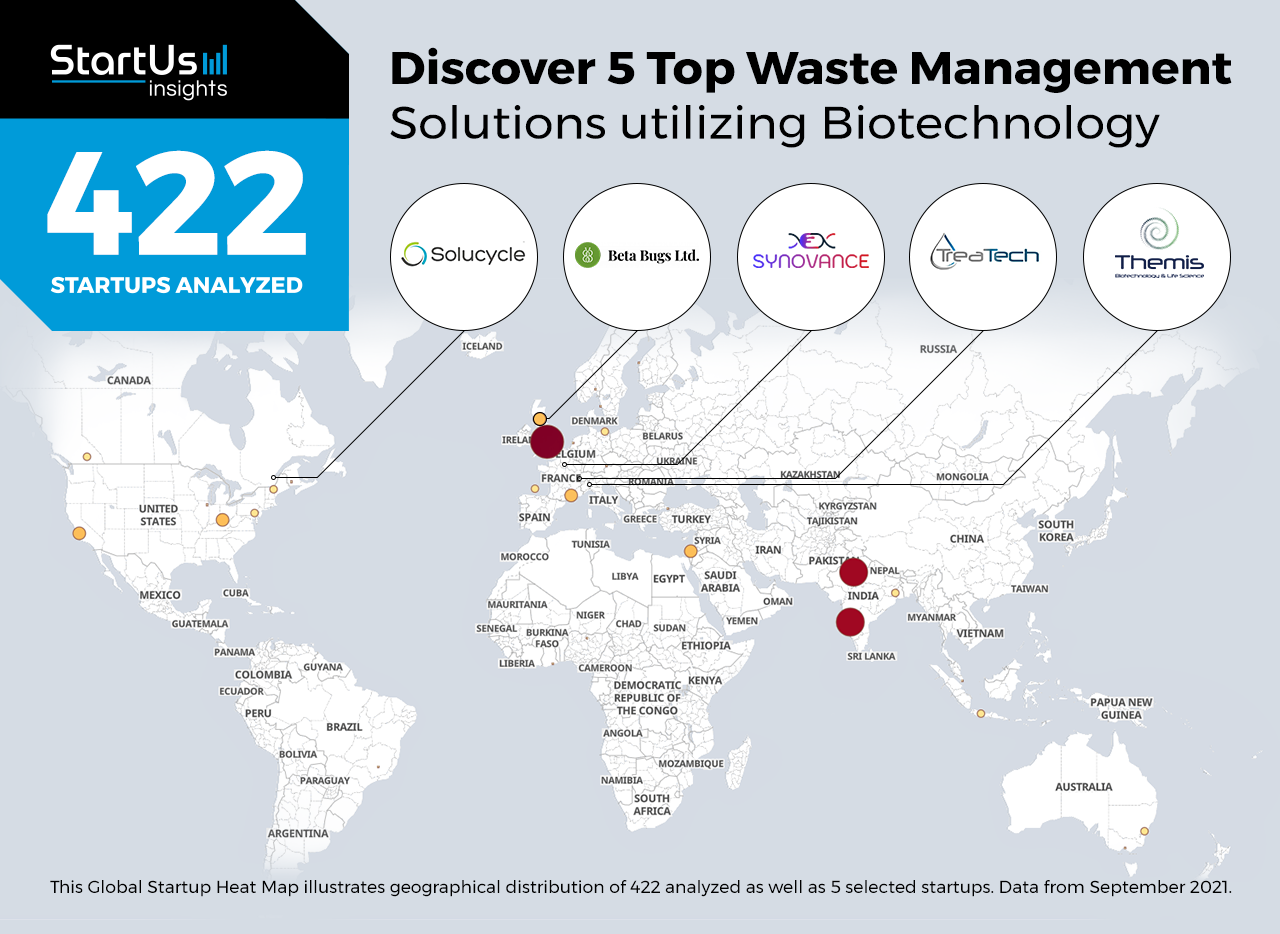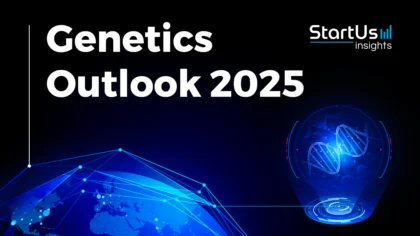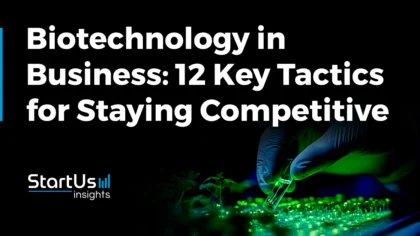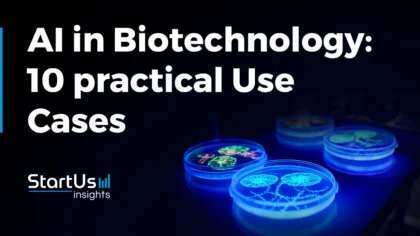Staying ahead of the technology curve means strengthening your competitive advantage. That is why we give you data-driven innovation insights into the BioTech industry. This time, you get to discover 5 hand-picked waste management solutions utilizing biotechnology.
Out of 422, the Global Startup Heat Map highlights 5 Top Waste Management Solutions utilizing Biotechnology
The insights of this data-driven analysis are derived from the Big Data & Artificial Intelligence-powered StartUs Insights Discovery Platform, covering 2 093 000+ startups & scaleups globally. The platform gives you an exhaustive overview of emerging technologies & relevant startups within a specific field in just a few clicks.
The Global Startup Heat Map below reveals the distribution of the 422 exemplary startups & scaleups we analyzed for this research. Further, it highlights 5 BioTech startups that we hand-picked based on criteria such as founding year, location, funding raised, and more. You get to explore the solutions of these 5 startups & scaleups in this report. For insights on the other 417 biotechnology-based waste management solutions, get in touch.
TreaTech offers Hydrothermal Gasification for Wastewater Treatment
Presently, heterogeneity of the wastewater causes downstream equipment failures, which increases the cost of wastewater treatment. Besides, the extraction of valuable substances from wastewater is challenging as it contains large solids, hairs, and fibers. Gasifying wastewater aids in the extraction of useful elements. Therefore, startups are using biotechnology to improve wastewater treatment.
Swiss startup TreaTech uses biotechnology to transform wastewater using hydrothermal gasification. The startup’s solution utilizes the features of supercritical water, high temperature, and pressure, to decompose wet biomass. This converts it into gases such as methane, carbon dioxide, and water vapor. Further, the process decreases the solubility of mineral salts facilitating crystallization which enables the separation of the salt from the wastewater. For industries that produce high-salt concentration wastewater, this improves the efficiency of wastewater treatment.
Beta Bugs advances Agricultural Waste Upcycling
Agricultural solid wastes are indiscriminately dumped or burnt, leading to air pollution, soil contamination, smoke, and dust. Existing solutions like decomposing to remove agricultural waste further pollute the soil. On the other hand, applying biotechnology to upcycle agricultural waste and residues enables circularity. Thus, startups are developing solutions to convert agricultural raw waste into biobased commodities.
Beta Bugs is a British startup that produces black soldier fly breeds for the insect farming sector. The startup combines biotechnology and quantitative genetics to produce black soldier fly and improve the production of animal feed. The black soldier flies are bred on various waste streams, including agricultural and food waste. This provides a green, circular, and regionally produced alternative to the environmentally damaging production of soy meal and fishmeal.
Synovance produces Alternative Textile Dyes
Industrial waste streams contain several useful elements. However, the present extraction and processing techniques are inefficient and incur high costs. Introducing microorganisms to change the composition of effluents is efficient and delivers useful bioproducts. To this end, startups are advancing biotechnology-based solutions for industrial wastewater recovery.
Synovance is a French startup that offers alternative textile dyes. Using genetically engineered organisms, the startup converts industrial biomass waste into dyes along with other high-value chemicals and enzymes through DNA synthesis. This provides alternative sustainable chemical raw materials for use in textile, food, and chemical industries.
Solucycle facilitates Food Waste Upcycling
Restaurants and other food outlets have difficulty managing food leftovers, excess food, and spoiled items. At present, the available food waste management solutions require a lot of manpower to operate, whereas automation makes the process more efficient. That is why startups are developing robotic solutions to optimize food waste management.
Canadian startup Solucycle provides robotic food waste management for commercial kitchens. The startup’s Solu-Robot enables onsite recovery and management of food waste. The robot transforms food waste into sludge without using water and transfers the material to a tank equipped with an intelligent system. It then recovers residues and converts them into biogas or compost.
Themis enables Waste Volume Reduction
The stringent regulations governing the disposal of waste in various industrial sectors require multi-processing. However, the current limited equipment and machinery only support waste with homogeneous composition. Therefore, startups are providing solutions that support the multi-processing of waste to comprehensively manage heterogeneous waste and reduce its volume.
Italian startup Themis offers a waste recovery technology (WRT) machine for waste volume reduction and management. The startup’s solution returns reusable treated solid products and the remainder in distilled water form. It enhances the waste through a multi-process treatment of evaporation, drying, granulation, and mixing. This aids in the management of sewage sludge, chemical waste, and pharmaceutical waste, among others.
Discover more BioTech Startups
BioTech startups such as the examples highlighted in this report focus on the circular economy, waste-to-energy, and wastewater treatement. While all of these technologies play a major role in advancing the industry, they only represent the tip of the iceberg. To explore more technologies, simply get in touch to let us look into your areas of interest. For a more general overview, you can download our free BioTech Innovation Report to save your time and improve strategic decision-making.









